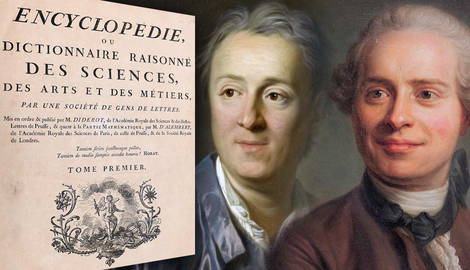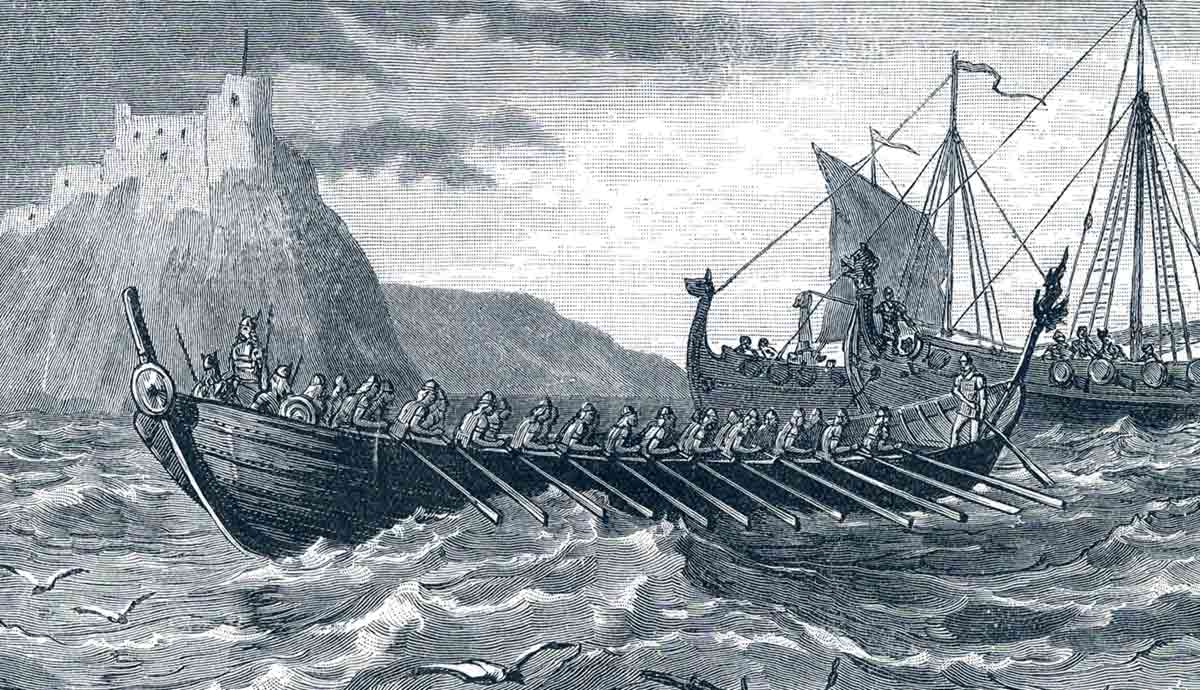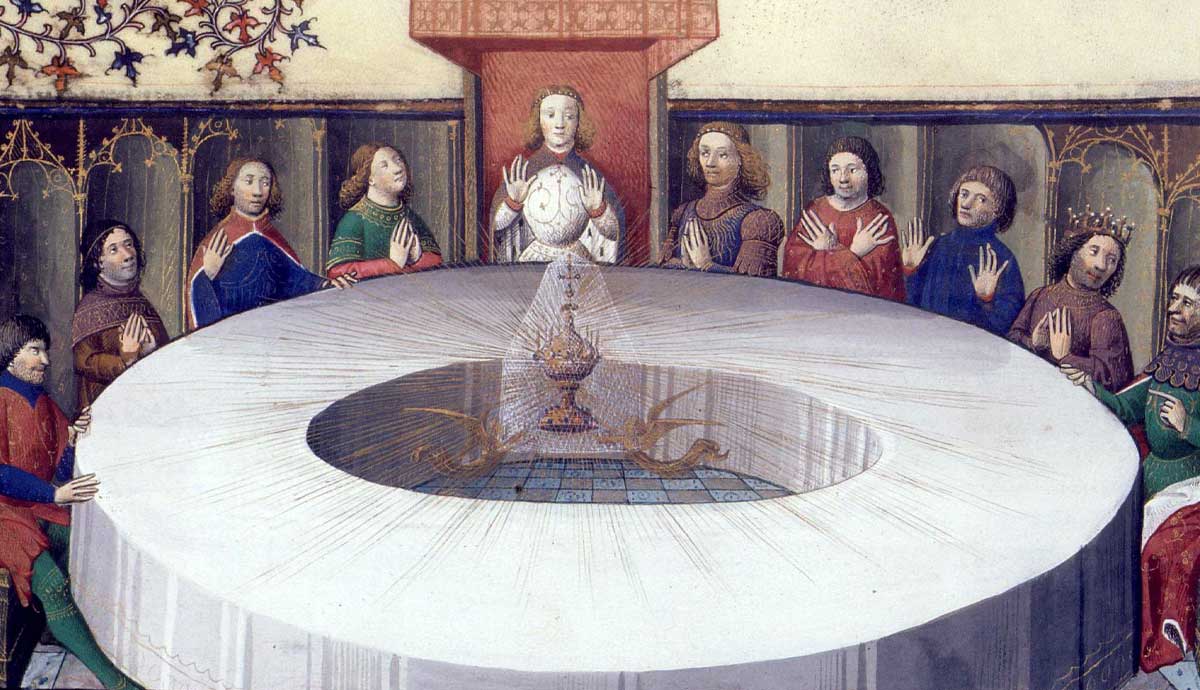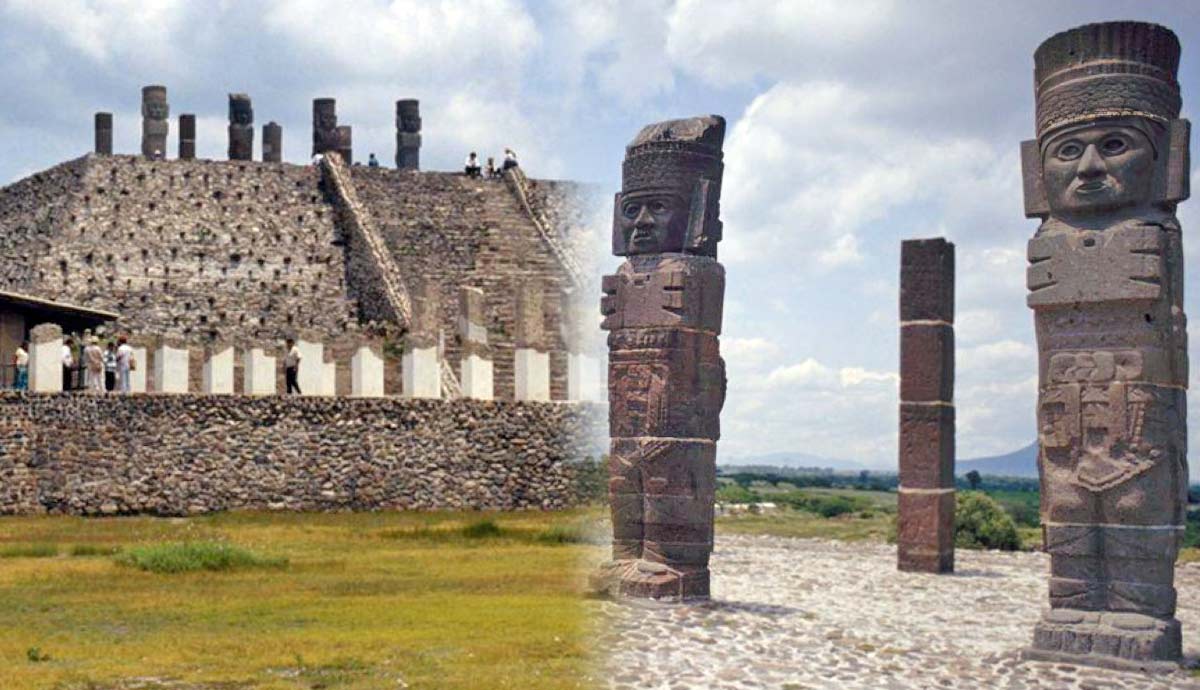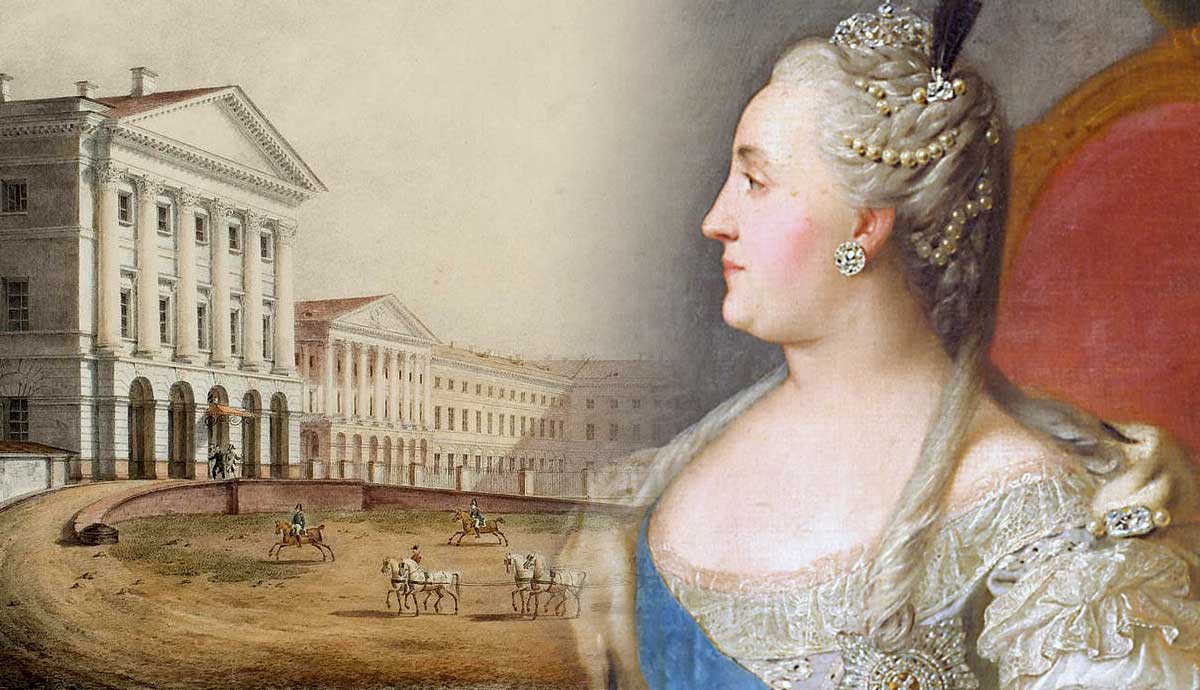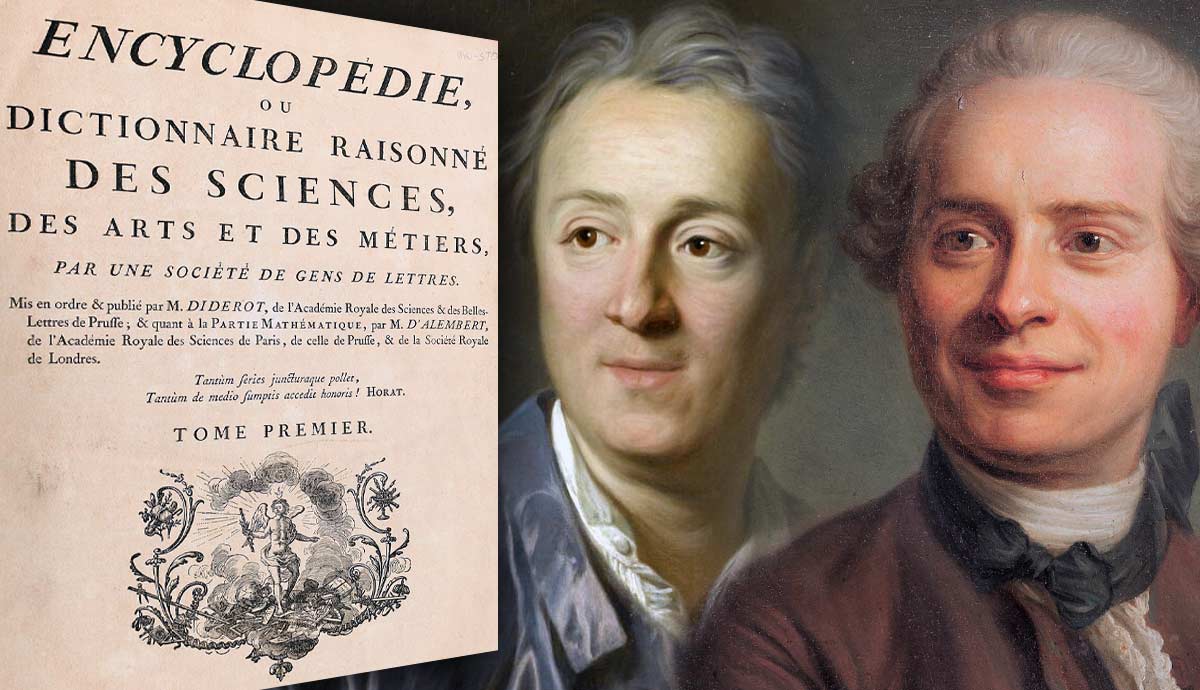
If there was a true symbol of the Enlightenment Era, it has to be the Encyclopedia, or A Systematic Dictionary of the Sciences, Arts, and Crafts. Its main goal was to inform its readers of educational topics, from mathematics and chemistry to history, art, and philosophy. When we talk about those who wrote for the Encyclopedia, we are talking about big names such as Voltaire and Rousseau! Let us find out what exactly the Encyclopedia was and who the most prominent contributors were.
The Project of the Encyclopedia

The famous Encyclopedia had far from an easy and smooth beginning, distribution, and establishment among its readers. The project started in the early 1740s, inspired by Ephraim Chambers’ Cyclopaedia (1728). The French publisher André Le Breton wanted to translate the work into French. However, everything changed when Denis Diderot took the initiative and became the editor-in-chief and one of the co-editors of the Encyclopedia.
Instead of translating the Cyclopaedia, Diderot took a completely different approach. He decided to work with different authors and scholars from various scientific disciplines across Europe and publish their writings in a new and independent Encyclopedia. Together with his co-editor d’Alambert, he wanted to gather human knowledge and make it accessible to a broader public.
During the 18th century, when the Encyclopédie, Ou Dictionnaire Raisonné Des Sciences, Des Arts Et Des Métiers (Encyclopedia, or A Systematic Dictionary of the Sciences, Arts, and Crafts) was born and published, educating people and getting the necessary work to launch the enterprise took a lot of effort. Academics and future scholars faced many challenges, from physically not having the manuscripts or their translation to having false and not factually correct writings.

One of the big steps forward to advancing sciences was to actually provide scientists with information. By making writings and ideas that challenged backward beliefs available, the volumes of the first Encyclopedia provided scientific and critical thinking tools to different readerships.
The Encyclopedia and its authors personally had an enormous impact in fostering intellectual and social progress. The first volume of the Encyclopedia was published in 1751, and just as its co-editors had promised, it provided articles from a wide range of disciplines and topics.
The first volume was extremely well received and made its co-editors and authors famous among scholars and elites of that time. A total of 28 volumes were published from the first publication in 1751 to the last in 1772, including the period when the Encyclopedia was temporarily banned in 1759.
Who Wrote the First Encyclopedia? Diderot and D’Alambert

Denis Diderot (1713-1784) was a chief editor and one of the most important people responsible for the Encyclopedia seeing the light of the day. If someone truly embodied the ideals of the Enlightenment, it was this well-known philosopher and writer.
The absolute monarchy and the Catholic Church represented values that opposed the new philosophical wave and Diderot’s political views. Diderot was already known to French authorities since he ended up in jail once. By taking a role in publishing the Encyclopedia and writing some of its most provocative and alluring articles, he somewhat got the recognition and the protection of some of the most intriguing historical figures of the 18th century.
He famously met Catherine the Great, the Russian empress, who was one of his biggest financiers. Diderot will forever be praised as the chief editor of the Encyclopedia, and the whole scientific community greatly benefited from his brave fight to make knowledge more available to curious readers and scholars.
The second co-editor of the Encyclopedia was a well-established mathematician, physicist, and philosopher, Jean le Rond d’Alambert (1717-1783). Together with Diderot, he was one of the leading men in the French scientific community and the Enlightenment period. Besides being the Encyclopedia co-editor, he was also one of the contributors.
He was an extremely versatile writer for the Encyclopedia since he wrote about mathematics, physics, philosophy, and music theory. One of his most famous essays, Preliminary Discourse, appeared in the first volume of the Encyclopedia. In the text, d’Alambert explained the goals and philosophy behind the project itself.
Voltaire, Montesquieu, and Jean-Jacques Rousseau

Voltaire, or Francois-Marie Arouet, was one of the most famous and recognized philosophers not just of the 18th century, but across generations. He managed to build a persona and voice that let him openly discuss some of the most engaging and intricate ideas of the period.
Although he cannot take credit for the project itself, since he was not directly involved and responsible, he contributed to the Encyclopedia through his writings and changing the political climate. In particular, he provided articles on historiography, literary criticism, philosophy, and history of political institutions and ideas. The public knew him for his ability to challenge the power and hierarchical systems. He was very secularistic and therefore very anti-dogmatic when it came to religious belief.
Among the great political theorists and scholars of pre-revolutionary France, few are praised as Montesquieu. He is best known for his treatise The Spirit of the Laws in which he openly advocated the principles of the division of powers within the state. This reasoning made him lay down principles that were fundamental to political philosophy and sociology. He was not the most frequent contributor to the Encyclopedia but wrote articles and essays on political theory and law. His ideas were often wildly discussed among scholars and people calling for political change across the world.
The social contract theory is one of the most recognized and valuable models in political sciences, and Rousseau is one of the most significant philosophers who wrote about it. He had strong and persuasive views on the “general will” and political authority, which heavily inspired the democratic revolutions of the 18th century. For the Encyclopedia, he contributed articles and essays on a range of topics, including music, politics, and philosophy. However, his relationship with the co-editors was a complicated one. He eventually resigned because he feuded with Diderot in one of the most famous intellectual conflicts of the time.
Baron d’Holbach, Etienne Bonnot de Condillac, and Buffon

Paul-Henri Thiry, Baron d’Holbach was one of the most radical scholars with a wide range of interests. He was praised for his work in the fields of chemistry, mineralogy, and natural philosophy. However, he was best known for his ideas and opinions regarding the Church and religion.
In the 18th century, it was really rare for someone to advocate for atheism openly; d’Holbach chose to do exactly that. He was one of the most active Encyclopedia contributors, writing around 400 articles on various topics, including secularization. Because of some of his radical ideas, the Encyclopedia was often critiqued and censored.
Étienne Bonnot de Condillac was one of the most beloved and celebrated minds of the Enlightenment era, and he made a significant contribution to the field of epistemology. By studying different fields of epistemology and philosophy, Condillac developed important research on sensory experience. His work revolved around the idea of “sensationalism,” the theory that human experience comes from sensations, with an emphasis on reason. For the Encyclopedia, he wrote articles on psychology, philosophy of language, educational theory, and the empirical approach to human knowledge.

Comte de Buffon influenced natural sciences beyond the Enlightenment era, leaving an extensive legacy through his work and putting the politics of the 18th century aside. When addressing Buffon’s affiliation with the Encyclopedia, we have to be very careful, just like he was.
Buffon was a member of the French Academy of Sciences and was often seen at the French court as a member of the high society. As a result, he had to keep his distance from the individuals such as Diderot or d’Holbach. Despite his belief in science and reason, he avoided expressing his opinions regarding politics, religion, and philosophy. His contributions to the Encyclopedia included entries on natural history, geology, animals, and plants.
The Legacy of the Encyclopedia and Its Authors

In the second half of the 18th century, the impact of the Encyclopedia reached every aspect of cultural society—from academia and science to democratic developments and revolutions. By promoting Enlightenment ideals like rational thinking and evidence-based research, Diderot and the Encyclopedia writers made the scientific method the go-to approach for any serious academic.
Additionally, the ideas of separation of powers and the separation of Church and state brought attention to the possibility of a more fair and democratic political system. The principle of secularism was also one of the most prominent views among the scholars and philosophers who contributed to the Encyclopedia.
One of the most important legacies of the Encyclopedia is certainly the democratization of knowledge. Indeed, the main goal behind the project was to make scholarly texts more available to a broader audience and readership all around the world.
Indeed, by having knowledge and research more readily available, scholars and students could explore new facts and discoveries in various fields and disciplines. In this sense, the Encyclopedia undoubtedly influenced the progress and development of the next generations of scientists and philosophers.

By making knowledge accessible to everyone, the Encyclopedia also promoted individual critical thinking, leading its readers to question existing political systems and norms. The contributors to the Encyclopedia left an enormous impact on the fight for free and democratic societies. For example, they influenced the French Revolution, whose leaders shouted out loud ideas presented in the Encyclopedia.
Measuring the impact and legacy of the Encyclopedia is close to impossible, as we can not imagine a contemporary society without its contributors and ideals. The Encyclopédistes (as the contributors were commonly called) and the co-editors, Diderot and D’Alambert, will forever be remembered for making knowledge available in such troubling times, even when their lives and careers were in danger. The world will forever be in debt to them and their often selfless sacrifices in the name of progress.
Further Reading:
Darnton, R.(1979). The Business of Enlightenment: A publishing history of the Encyclopedie 1775-1800. Harvard University Press.
Roche, D. (1998). The culture of enlightenment: Knowledge, virtue, and the spread of letters. Cambridge University Press.
